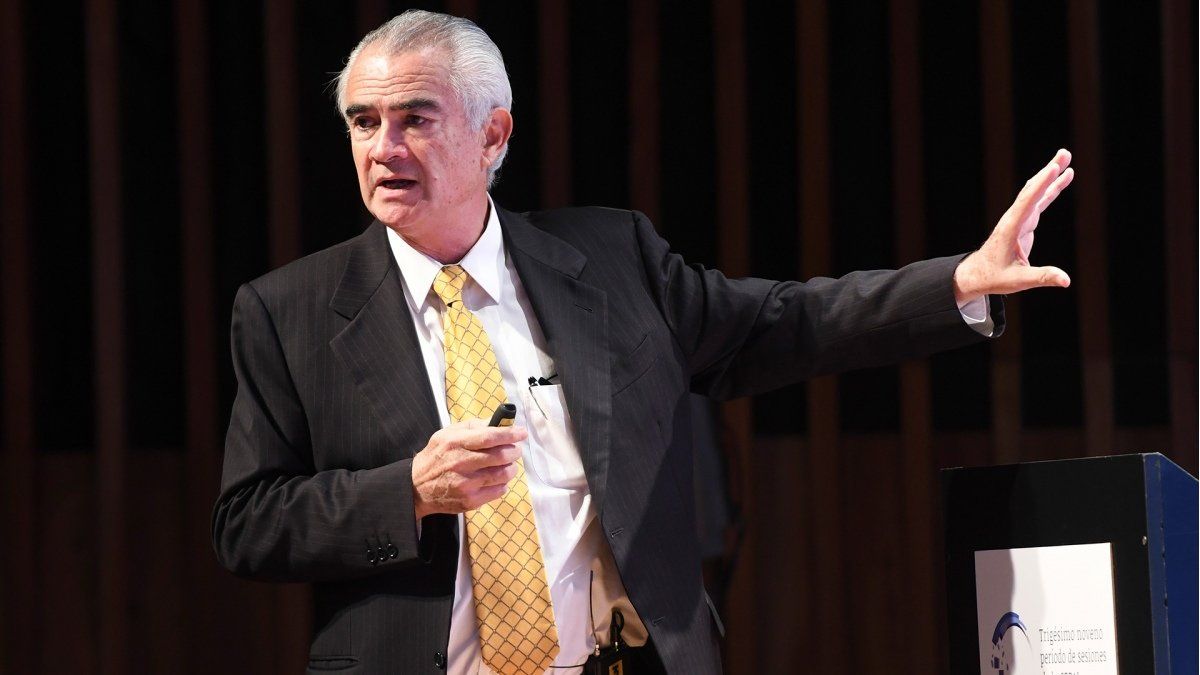Visiting Buenos Aires to participate in the XV Regional Conference on Women in Latin America and the CaribbeanSalazar-Xirinachs describes how the region was affected by what he calls a “crisis cascade”: the pandemic, the war and their reverberations have involved supply chain disruption, price hikes, and fiscal and monetary disruptions.
Furthermore, the important increase in interest rates has made debt service more expensive and the possibility of placing new debt.
“A majority of Latin American countries are with limited fiscal space and faces higher debt service,” says Salazar-Xirinachs, who, in any case, does not glimpse an imminent risk of cessation of payments in some of the countries of the region.
Outlook 2023: less inflation, less rates and lower rates
“You can glimpse a 2023 in which the theme of inflation improve a little through the year, but certainly the growth rate will be worse“, says Salazar-Xirinachs.
The economist observes that there basic food products whose price curve is not only flattening, but already is even at a turning point and starts to go down.
In addition, he believes that it is possible that towards the first or second quarter of 2023 the increases in the monetary policy reference rates will stop or, at least, have a pause, something that, if it occurs, would have a positive impact on inflation expectations.
The bad news, however, is that the expected respite in prices will come from a meager economic growth in Latin America, projected by ECLAC at 1.4% by 2023, below the expected global average of 2.7%.
Regional performance would be just above the 1% expected for the United Statesthe latter projection that in itself implies concern for Latin American countries, such as Mexico and the Central American nations, which have in the US economy their main export destination.
“There is also no good news for the countries that have the eurozone as their main market of destiny because the expected growth in the eurozone is only 0.5%. In fact, in several European countries there is going to be a recession,” he says.
“This is not the time for gradual changes”
For Salazar-Xirinachs, the governments of the countries in the region “should raise the level of ambition because deterioration and circumstances demand it”.
“In view of the magnitude of the shock, this is not a time for gradual or timid changes. I hope that both the governments and the social dialogue and the agreements that can be negotiated recognize the seriousness of this and that there are truly transformative, ambitious changes,” he maintains.
In his opinion, the speed with which these changes must be made is also imposed by societies because the time that citizens give to governments to fix problems It’s not what it used to be.”
“Now there is impatience and that is a challenge. The rulers are in a stress test in the face of this situation of shocks,” she says.
Salazar-Xirinachs suggests adopting policies such as negotiating fiscal pacts and pass some taxesas far as possible progressivesuch as a tribute to the extraordinary income obtained by certain sectors benefited by the “bonanza” of primary products.
It also suggests advancing renegotiations of public and private, internal and external debtsto launch them at longer terms, and explore innovative financing schemes, such as green bonds.
“But a key policy is economic reactivation because, even without a tax reform, if a country, instead of growing at 0.2%, grows at 2 or 3%, that gives it much more tax revenue and opens up a bit of fiscal space”, reflects the executive secretary of ECLAC.
Source: Ambito
David William is a talented author who has made a name for himself in the world of writing. He is a professional author who writes on a wide range of topics, from general interest to opinion news. David is currently working as a writer at 24 hours worlds where he brings his unique perspective and in-depth research to his articles, making them both informative and engaging.




